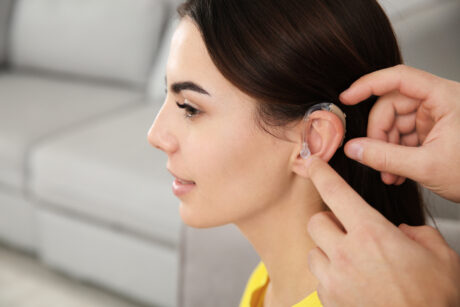Tinnitus, that persistent ringing, buzzing, or hissing in your ears, can be incredibly frustrating and disruptive to daily life. It can interfere with sleep, concentration, and overall well-being. If you’re one of the millions who experience tinnitus, you know the challenges it presents.
While there’s no one-size-fits-all cure for tinnitus, there are various treatment options that can provide significant relief. This guide explores potential tinnitus treatments to help you find the best path toward a quieter life.
It’s important to remember that tinnitus causes are varied and can be complex. Seeking professional guidance from an audiologist is crucial in determining the underlying cause and developing a personalised treatment plan.
Sound Therapy
Sound therapy is a type of tinnitus therapy that uses external sounds to mask or cover up the perception of tinnitus. This can be achieved through various means, including:
- White noise: A consistent sound like static or the sound of a fan.
- Nature sounds: Ocean waves, rain, or birdsong can be soothing and provide a sense of calm.
- Music: Listening to enjoyable music can help distract from tinnitus.
- Tinnitus Control Instruments (TCIs): These devices are specifically designed to generate customised sounds that help manage tinnitus. TCIs are often a popular choice for those seeking relief.
Sound therapy can help reduce the perceived loudness of tinnitus, improve sleep, and lessen the emotional distress associated with it.
Cognitive Behavioral Therapy (CBT)
CBT is a form of talk therapy that helps individuals identify and change negative thought patterns and behaviours related to their tinnitus. This involves working with a therapist to explore how thoughts and emotions influence reactions to tinnitus, and then developing strategies to reframe negative thoughts and reduce anxiety.
While CBT doesn’t eliminate tinnitus, it equips individuals with coping mechanisms to manage its impact on their lives. CBT can be particularly helpful in addressing the anxiety, depression, and sleep disturbances that often accompany tinnitus.
Tinnitus Retraining Therapy (TRT)
Tinnitus Retraining Therapy (TRT) combines sound therapy with counselling to help individuals habituate to their tinnitus. The goal of TRT is to retrain the brain to categorize tinnitus as a neutral sound that is no longer bothersome.
TRT involves a comprehensive assessment with an audiologist who will develop a personalised program that may include the use of tinnitus control instruments and directive counselling. Over time, TRT can help individuals reduce their awareness of tinnitus and improve their quality of life.
Hearing Aids
For individuals with tinnitus and hearing loss, hearing aids can be a valuable treatment option. By amplifying external sounds, hearing aids can make tinnitus less noticeable.
Hearing aids can also improve communication and overall quality of life for those with hearing loss, which can indirectly reduce the distress associated with tinnitus.
Finding the Right Treatment for You

With several tinnitus treatments available, it’s essential to consult with an audiologist or healthcare professional to determine the most appropriate approach for your specific needs. They will consider factors such as the cause of your tinnitus, the severity of your symptoms, your lifestyle, and your preferences.
While the question “can tinnitus be cured” is a common one, the answer is complex. While a complete cure may not always be possible, effective management strategies can significantly improve your quality of life. Whether it’s sound therapy, CBT, TRT, or hearing aids, there are options to explore.
Take the next step in managing your tinnitus by scheduling a consultation with Listening Lab. We can discuss your individual needs and explore treatment options and other therapies to help you find relief.











